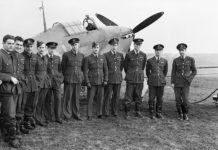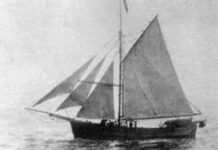Joe Boyle was a boxing promoter who made a fortune in gold mining. In later life he mingled with presidents, prime ministers, and, romantically, with a queen.
Joe Boyle’s Early Life
Born in Toronto in 1867, Joseph Whiteside Boyle moved to Woodstock, Ontario with his family when he was four years old. He graduated from Woodstock College with his high school diploma and set off for New York with his father.
According to the Canadian Encyclopedia he “hopped an outbound ship, spending three years at sea. On his return he started a freighting business, got married.” The marriage lasted long enough to produce several children but it could not survive Boyle’s restless spirit.
The Klondike Gold Rush
Leaving his wife behind, Boyle hooked up with the Australian heavyweight boxing contender Frank Slavin whose record suggests he was on the downside of his career in the ring.
In 1897, the boxer with Boyle as his manager headed off to Dawson City in the Yukon to try their luck in the gold rush. Clearly, Boyle had more of a knack for gold mining than for boxing promotion and he quickly got control of the rights to a large parcel of Klondike River valley land.
Michael Gates on the Dawson City website (“ ‘Klondike’Joe Boyle,”) writes that Boyle “eventually wrestled control of the Canadian Klondyke Mining Company from the powerful Rothschild family. By 1909, he was in charge of one of the two corporate mining giants in the Klondike and became known as ‘The King of the Klondike.’ ”
Stanley Cup Contenders
Now a rich man, Boyle financed a hockey team to challenge for the Stanley Cup. The Dawson City Nuggets travelled to the nation’s capital to take on the Ottawa Silver Seven. The Yukon team should have received a trophy for the journey alone, which took a month and involved dog sleds, ships, and railways.
The games did not turn out well for the visiting team, losing 9-2 and 23-2 to the reigning Stanley Cup champions. But, the Nuggets did get their name on the trophy.
Joe Boyle Goes to War
The Woodstock Public Library records that when the First World War started Boyle “outfitted and presented to the Canadian Army the 50-man Yukon Machine Gun Company. Named an Honourary Lt. Colonel of the Canadian Militia, he was adjudged too old to command it in the field.” But, that didn’t keep him from the action.
He set off for Russia and was put in charge of getting the transportation system of the southwest sorted out. With the Bolsheviks taking over control of Russia, Boyle went to Romania to see if he could be of help. “Well, yes,” the Romanians said, “we’d like our crown jewels back.”
(The Dictionary of Canadian Biography says the treasure was the Romanian archives and paper currency; all other sources say it was the crown jewels.)
Whether jewels or the more prosaic archives and money, the goods were held in the Kremlin in Moscow and Boyle was able to spirit them away, and, says the Yukon Education Student Network, there followed a dash to Romania by train that involved a fair bit of gunfire: “Crashing through one last enemy rail block he finally arrived at the Romanian border. Boyle was surprised when his train was met with intense gunfire as it attempt to pass Romanian troops.” He was able to explain the nature of the precious cargo and the soldiers put down their guns.
The King of the Klondike meets the Queen of Romania
In 1918, Boyle negotiated a ceasefire between Romania and rebel forces in Bessarabia. Then, says the Dictionary of Canadian Biography, he rescued “50 high-ranking Romanians held in Odessa by revolutionaries, [making] Boyle a national hero in Romania.”
These exploits brought him to the attention of the Queen Marie of Romania, a granddaughter of Britain’s Queen Victoria.
Queen Marie was a noted beauty and romantic and sources are coy about the nature of her relationship with Boyle. The Canadian Encyclopedia notes that, “The Queen’s diary is full of descriptions of Boyle’s strength, rugged good looks, deep blue eyes, and reassuring smile. For his part, Boyle was smitten. He would clasp her hand and promise that nothing would make him forsake her.” But, his pledge was undone by his health.
Boyle suffered a stroke in 1918 and his physical condition declined over the next five years. He died in England in 1923.







